-
Posts
457 -
Joined
-
Last visited
Content Type
Profiles
Forums
Events
Books
Books Reviews posted by Hux
-
-
Like many, I had the misfortune of knowing the backstory regarding Toole and his quest to get this book published, as well as the tragic suicide he committed as a result of his failure to do so. Due to that knowledge, I so wanted to love it. But I didn't.
It's okay, and I enjoyed it for the most part but wasn't really blown away. The first third, where we are introduced to the wonderfully grotesque globule of man known as Ignatius J. Reilly, was a lot of fun to read. This man just utterly overwhelms you with his absurd, pompous affectations and over-the-top character. Then, however, I found my interest slightly waning, especially when we're introduced to the other rather pointless characters (if you ask me) who frequent the 'Night of Joy' club such as Lana and Darlene and (worst of all) Jones. All he does is sweep the floor and say 'ooo wee' over and over. It's easy enough to read and has a lot of chapters predominantly filled with dialogue rather than narration, and occasionally there are some long, and very boring letters to and from his friend Myrna which I hated. The truth is the plot of this book (which only tangentially requires the involvement of the other characters) is rather unnecessary in the grand scheme of things. This book is about the amazingly outlandish Ignatius. He is the book.
And that's kind of why the book ultimately fails for me. As comical and mesmerising as he is, the man is an altogether unrealistic individual whose personality dominates all aspects of the plot. As a result, the plot therefore becomes redundant. Frankly, who cares about the pornography scam, or the need for policeman Mancuso to get an arrest under his belt, or 'Levy Pants' being sued. None of it matters. All that matters is Ignatius. He is simultaneously the best thing about the book but also the reason it feels ultimately... inconsequential.
The truth is, we rarely meet people like this in real life. The whole book feels like a collection of buffoonish clichés and convenient plot points, all in service of this obese and pretentious oaf. Sorry, but that isn't enough for me. I need literature to have something more to it than a clownish character who belongs in a Looney Tunes cartoon.
Not a terrible book by any stretch. But not remotely worth the praise either. I read through it rather quickly and found it mostly inoffensive. -
This was a Mills and Boon romance novel for the contemporary age.
Every time a book like this wins awards and gets praise, I come to the conclusion that modern books are written for the growing demographic of people who... simply don't like reading books. Firstly, there's nothing remotely 'normal' about these two characters. I'll skip over the predictably dream-like otherness of Marianne and focus on the utterly non-existent Connell. I mean, I'm sorry, but that guy (calm, thoughtful, caring, emotionally mature, intellectually honest, culturally sensitive, performatively left-wing, etc) only exists in the heads of women -- women writers in particular. Connell isn't just these things by the end of the book after a series of life changing events. No, he's these things from the very start... as a teenager. You know, like most normal teenage boys are.
These two people are highly popular, good looking, the smartest in school, having regular sex, and are apparently off to university where they'll end up travelling around Europe on a gap year and become writers. You know, like normal people.
I was genuinely quite irritated but this book. It's everything I hate in fiction. It was sold as literary fiction but the fact is... it's the standard chick-lit novel and nothing more. So why all the hype and awards? I couldn't tell you. It was all rather banal and trivial. I did, however, like the ending. These two millennial idiots can't seem to communicate their feelings. Even at the end she tells him to go to New York. I do wonder what point Rooney was making though. It's not as if her generation are emotionally closed off or anything, in fact, aren't they prone to expressing their feelings continuously unlike any other previous generation? I feel like I've been duped onto reading a Coleen Hoover novel. -
This was an exquisite piece of work. A proper good-old yarn.
It felt so real that about halfway through I googled G.B. Edwards to see if this was literally just his life. But no, he left Guernsey, lived in London, had a very different existence. Ebenezer feels too real to be fictional though; too cantankerous and funny and opinionated. Most novels are narrated by personality-lacking robots who gaze into the middle distance and say nothing remotely human. Yawn. This was sweeping and epic and full of life. A real life.
I so desperately wanted him to get together with Liza Quéripel but it just doesn't happen. Because that's just not how life works. I felt for him when his best friend Jim died in the First World war. When Tabitha lost her husband. When Raymond lost his faith. When the sisters Prissy and Hettie fell out and made up again and again. When Neville Falla vandalised his property. When he killed a Nazi. When he befriended another. And when he told us about the book he was writing.
This book was an absolute joy. And to learn it was yet another book which publishers rejected reminds me how incompetent most publishers are.
"The older I get and the more I learn, the more I know I don't know nothing, me." -
This was great.
There's a modern term that's used to describe men who pander and flatter women in the hopes that they'll be rewarded with love, sex, attention. Simp! And this book is about the king of the Simps -- George Harvey Bone. He is in love with the beautiful Netta and hangs around with her and her set, drinking at all hours and avoiding employment of any kind. He confesses his love for her but she continues to use him for his money and, later, for his connections. One of her hangers-on is Peter, a spiv character who is just as keen to take advantage of George as she is.
I honestly found myself despising Netta quite viscerally but also George too, his unwillingness to grown a spine despite being treated like a doormat something that infuriated me. The book reminded of the Tunnel by Sabato but whereas the paranoia of that book's male protagonist could be interpreted as self-inflicted, there is no ambiguity about George's feeling of humiliation and poor treatment. Netta is, quite explicitly, a bitch. She has a past working as an actress and has aspirations to get back into that world but otherwise she is, like the men she consorts with, a self-interested alcoholic. And George is nothing more than a means to an end for her.
And here's where things get complicated because George, also a big drinker, suffers from a unique mental illness. I would describe it as a dissociative personality disorder but it's all a little vague. Essentially, it involves George going into a kind of dream state where an alternative version of himself is in control of his thoughts and actions. When George clicks in and out of these personalities, he remembers very little of what has happened. The whole thing is very effectively done by Hamilton and you get the impression that George is just one person but has two states of being.
The book also takes place just as the 2nd World War is about to begin and I found it fascinating seeing these young people presented in a manner that was very familiar to me. When I think of that period, I think of straight-laced individuals wearing starched clothing and doing their bit for the war effort. But obviously, young people were just the same as they've always been; keen to get drunk, have fun, and avoid work. That the book was published in 1941 at the height of the war is also interesting as Hamilton essentially takes it for granted that fascism will lose.
This was a great book. And very uniquely British. -
An exiled socialist named Pietro Spina returns to fascist Italy and, with the authorities on his trail, and with the help of some old friends, masquerades as a priest named Don Paolo hiding out in the small mountain village of Pietrasecca. Here, he intends to recuperate from illness and keep a low profile, but he becomes the favourite of many of the villagers, especially his landlady, and is expected to perform the role of priest more thoroughly than he imagined. He meets and develops feelings for the a young girl named Cristina. All while remaining active in the socialist movement and maintaining connections with those in Rome who know his true identity. He uses his time to find meaning in his beliefs, both political and spiritual.
I really enjoyed this. It's nothing groundbreaking or original, just an exceptionally well-written novel that is thoroughly engrossing. The language is straight-forward with short breezy chapters, though Silone uses occasional metaphors and aphorisms (especially of a religious nature) throughout the book as well as the rich language of Catholicism. The descriptions of the Italian countryside are wonderful, both constructive for the reader and pleasantly pastoral; this applies to the people as well, not to mention the (many) donkeys that transit them.
The books themes are very heavily anti-fascist which also includes a strong condemnation of Stalin's brand of communism. Pietro struggles with the idea that too many people simply conform to the mainstream interpretation of their tribe's ideology without critical thinking -- something he is unwilling to do. If we aren't willing to criticise the party then we're no better than the fascists. Similarly, he struggles with his atheism, this now more prominent since he is masquerading as a priest and having to become a spiritual guide for many of the villagers. Fortunately, he has the help of the real priest Don Benedetto to rely on (someone who knows his true identity). And then, of course, there's the issue of sexuality which, in my opinion, is slightly confused in the conduct of Pietro, almost as if his clothing and pretence of being a celibate priest is influencing his biological state. Early in the book, for example, when he is hiding out in a barn, he encounters a frisky young woman who agrees to meet him later for sex. But when they meet, they mutually agree not to pursue any physical intercourse, as though this is the beginning of some kind of hitherto unrequired purity. His romantic feelings for Cristina, however, seem almost saintly by comparison (as do hers).
My only criticism of the book would be the the slight over romanticisation of the peasants. Pietro, like Silone, is yet another educated middle-class socialist trying to liberate the poor (while they're busy working for a living). It's all a little simplistic. That being said, Silone acknowledges this himself a couple of times, noting that "socialism is for the well fed." Otherwise, the book is hugely entertaining and lacks any of the cynicism (or nihilism) which I usually enjoy.
A very engaging novel. -
A young soldier (Drogo) rides towards a remote fort in a desert where he is to be stationed. There, by the Tartar Steppe, the soldiers are tasked with watching for any potential movements of the mysterious northern army. Once there, he wants to leave but agrees to do his four month stint. Various circumstances dictate that he ultimately stays for two years. He makes friends, he rises up the ranks, he does his duty. Occasionally, there's excitement at the prospect that the northern armies might be mobilising. But it usually turns out to be an illusion. He is young, he has the best days of his life ahead of him.
A further four years go by. Drogo has been promoted, he continues to do his duty. One day, a soldier sees movement among the desert and the potential for glory appears to be on the same horizon. But again, it's a false alarm. And Drogo and his comrades go back to their marching, their routine, their daily activities. He is still young, he still has the best days of his life ahead of him. Fifteen more years go by. Drogo is now second in command. He is a middle aged man, watching new, younger men, arrive to do their duty. He has never married, has no children, has accomplished little in his career, but he continues to hope, continues to believe that his life has meaning. But he is no longer young.
Drogo is now in his late-fifties, closing in on retirement. He is struck by an illness and becomes withered and guant. Just then, the Northern armies do indeed appear to be on the march towards the fort. But Simeoni (the leader) says that he is too ill to fight and so must return to the city to recuperate. Just as his purpose to life arrives, he is taken away in a carriage, has it snatched away, and dies pointlessly in an inn. The end.
The book is a curious (kafkaesque) look at the repetitive nature of existence, at the wasted years we throw away on working in jobs we hate, at the wasted youth we cannot hold onto, at the desperate search we have for a purpose, a meaning. To find something that will distract us from the ticking of the clock. But in truth, no matter what we do, we waste our lives. Because what purpose is there? Marriage? Children? Being a success? All things designated by others as symbols of a successful life. But what difference does it really make?
This was a truly fascinating book. It wasn't necessarily the most enjoyable read and the prose never fully gripped me. But the ideas explored, specifically the ambiguous (Buzzati never tells us how to feel) notion of a what a worthwhile life is, are enormously powerful. -
An anti-social (and sexually impotent) man named Frederick Clegg who has no friends and collects butterflies becomes obsessed with an attractive young 20-year-old art student named Miranda. He has fantasies about kidnapping her, making her fall in love with him. One day, he wins the pools and suddenly has the money to make his fantasies come to life. Step by step he finds himself buying a van, a house in the countryside where he can keep her, but all the while he doesn't really believe it will ever come to anything beyond meaningless fantasies. Then, as if on auto-pilot, he actually does it.
Miranda is kept in a basement where Fred takes care of her every need, buying her nice clothes, perfumes, her favourite food, whatever she wants. He provides her with records, books, and the materials she needs for her art (including a drawing pad). At first she is understandably belligerent, refusing to speak, refusing to eat. Then she adapts her technique to better her chances of escape, almost befriending him, wanting to get to know him. Finally, she succumbs to the inevitable and offers herself to him sexually, only to find that he is appalled by this. Nothing she does seems to get through to him.
The book reminded me a lot of The Tunnel by Ernesto Sabato. But while that book only gives us the man's perspective, this one gives us both. Part one is narrated by Fred, we see things from his point of view, see Miranda as he does, a kind of precious item placed on a pedestal. But then, in part two, we are given access to the diary Miranda has been writing during her captivity, and we not only get her perspective but we suddenly get a human being, one that is complex and flawed; she is no longer just that beautiful creature he is obsessed with but a person, with thoughts, ideas, and loves of her own (including an older man she is seemingly in love with referred to as G.P throughout the novel). Fowles isn't even afraid of making her a little unlikeable, because, in truth, all fully formed human beings are. The point is, she is more than just the idealised fantasy that Fred wants her to be.
Given that this was published in 1963, I was amazed at how modern it feels. Fred is very much what we would call an incel today, low on confidence, self-pitying, while Miranda is opinionated, sure of herself, intellectually dominant. It was such a fantastic book to read, so easy to get lost in the stark prose, so nuanced in its portrayal of a madman and his victim who refuses to be a victim. And the ending has a sting. -
This was one of the most wonderful reading experiences I've ever had. The book is no classic but it's wonderfully written and profoundly engaging. I honestly couldn't put it down.
The story is fairly straight-forward and involves a man named Toru Watanabe reminiscing about his youth in the late 60s. After his best friend, Kizuki, commits suicide he becomes closer with Kizuki's girlfriend Naoko. They eventually have sex and Watanabe goes to university. Here he meets several characters, most notably Nagasawa and his girlfriend Hatsumi. Watanabe and Nagasawa begin going out drinking and meeting girls for sex. Watanabe then discovers that Naoko is in a sanitorium and struggling with her mental health. He writes to her, eventually visits, and they rekindle their romance. Naoko lives at the sanitorium with an older woman called Reiko (she tells a rather interesting tale about why she's also at the sanitorium which includes a story about teaching a 13-year-old girl to play the piano).
The Japanese really do have a way when it comes to writing erotica, don't they? That being said, it felt like there was a little too much sex being used as an alternative to other, more conventional expressions of affection. Maybe that's a Japanese thing. I don't know. Everyone seems to need emotional reassurance but only expresses it through sex. Then again, it was set in the late 60s so maybe that's why.
The casual use of sex aside, my only criticism would be the chapter where Murakami jumps ahead and tells us about the future of one of the characters. This felt out of place since the whole narrative takes place chronologically. Only at the very beginning of chapter one does he write from the perspective of being an older man in the late 1980s. Then we dive into the story when he's 18 and stay with that story. But suddenly, halfway through the book, he informs us of a character's fate and it felt a little jarring.
I'm reliably informed that this is Murakami's most conventional novel. I'm not sure if I'd like his other works as much but based on this, I will definitely seek out more of his work. I honestly can't remember enjoying reading a book this much.
-
The year is 1913. A celebration is planned for the 70th jubilee of emperor Franz Joseph's reign in the upcoming year of 1918; a committee is brought together to come up with a theme for this celebration and noted thinkers, politicians, and artists are invited to the meetings held at the house of Ermelinda Tuzzi, better known as Diotima.
Her cousin is Ulrich, a 32-year-old mathematician who is also invited. Ulrich is the man without qualities.
Where to begin with this book? Firstly, it's huge, at over a 1000 pages long in three volumes, and is quite daunting as a result of that; but the writing is Proustian in its exquisiteness. Every single chapter is like a work of art in its own right with magnificent prose, lyrical fluidity, and beautiful metaphors. That being said there are chapters that probably don't need to exist, where details are provided in sumptuous language for something that quite frankly doesn't add anything to the story. And that brings me to my second point: there is no story here. Hence why I loved it so much. Despite its 19th century style of flowing language, this book is very much considered a modern novel, this most prominently seen in its utter lack of a plot. The details I gave above essentially cover everything, several characters discussing a theme for the celebration and thus, discussing art, politics, morality, progress, philosophy, meaning, you name it. The book is a satire on western European civilisation and its inability to capture purpose without endless contradiction. The book revels in the big ideas of existence, society, and progress. It delves into philosophical discussion on virtually every page and has characters embodying these debates and questions. Yet the most opinionated character of all is the third person narrator, his thoughts and ideas being the most thoroughly explored and expressed (not sure I've encountered such an opinionated omniscient third person narrator in a book before).
There's a host of characters that orbit Ulrich such as Count Leindsdorf, his childhood friend Walter and his wife Clarisse (who is in love with Ulrich). His mistress Bonadea, the Prussian business man Arnheim, his black servant Soliman, and the maid Rachel. Then there's the murderer Moosbrugger who serves as a kid of floating question throughout the book on human nature and morality . They all spiral around Ulrich and add to his search for meaning and understanding. Then, towards the very end of the book, Ulrich (and Musil) abandons all of them entirely and spends several chapters focusing exclusively on Ulrich's sister Agathe, a woman with whom he has a quasi incestuous relationship (Musil is very deliberately vague on this yet equally quite clear). She is a stand-out character but only emerges at the very end of the book as a kind of other half for Ulrich, a Siamese twin as they describe it.
This book contains some of the most astonishingly wonderful writing I've come across but I wouldn't recommend it lightly. It's far too long and many chapters, while being beautifully written, offer little in terms of the themes being explored. For that reason, it's a 9 rather than a 10. -
A man is stuck in traffic and suddenly goes blind (a milky white blindness as opposed to darkness). A good Samaritan takes him home only to later steal his car. The next day he sees the doctor who is baffled. The day after that, the doctor discovers that he is now blind. And on it goes, with more an more people discovering that they are blind until the government starts rounding them up and placing them in an asylum. To begin with there are forty to fifty but gradually the numbers drastically increase. The doctor's wife also claims to be blind to stay with her husband despite this not being true. The army are positioned outside with strict instructions to shoot anyone who tries to leave. Soon the place is overpopulated with excrement everywhere and dead bodies. Then a group in a separate wing decides to keep all the food for themselves and demand money and jewels for food. Soon, they switch and demand that females from each ward be sent as payment. Eventually, the army abandon post as the blindness epidemic continues and the small group leaves and roams the apocalyptic streets in search of food and shelter.
The allegory here is fairly obvious, concerning the true nature of humanity and how civilisation has a tendency to ignore what's in front of their eyes. But I found that fairly simplistic and predictable with little originality. Most of us know exactly what humanity is. Most of us keep that truth close to the front of our minds on a daily basis. There is nothing especially groundbreaking here and in truth the high praise this book receives is slightly bewildering to me. I get the impression that it's a lot of people who want to read Stephen King but also want to seem more intellectual (Saramago won a Nobel prize after all).
That being said, I enjoyed the book and was swept along at a decent pace; the story is very engaging and though the writing style is often chaotic (very few full stops), it's actually quite an easy to read. My only criticisms would be the oppressively long chapters which, more than once, had me craving that they would end (never a good sign). And I also disliked the doctor and the girl with glasses having sex; it seemed absurd and pointless, and strangely presumptuous of a male writer.
Overall, very good though. -
Comedy and tragedy in equal measure.
The first half of this book details the sudden alcoholism of the main character Erwin Sommer and his decent into chaos. His inability to see his own spiraling behaviour results in a series of moments which are actually very funny involving, as they do, a rather comedic lack of self-awareness. There's one moment, for example, where he's at work with his wife Magda and pretends to drop something behind his desk so that he can bend down to drink, all while believing that his wife is none the wiser. I actually laughed at this (it even reminded me of the drunk family from the Fast Show). This absurd behaviour continues and escalates until he finds himself trying to seduce a local barmaid (who weirdly acquiesces) before he eventually begins stealing money and silver from his own house (this resulting a physical altercation with his wife and a hollow death threat).
He then rents a cheap room from a man named Lobedanz, a badgering weasel of a man, who endlessly manipulates the drunkard into giving him more money and jewelry. At one point, after withdrawing a significant amount of money (thousands) from the bank, the two of them wrestle in a train station toilet and Lobedanz takes the vast majority of the money. Sommer, however, is so thrilled to have enough left to buy drink, that he doesn't even appear remotely bothered by this. Which also made me laugh.
This, however, is where the novel changes course quite abruptly. It stops being quite so funny. Sommer is soon arrested for the 'attempted murder' of his wife and ends up in gaol with some unsavoury characters (including, towards the end, Lobedanz) before being moved on to a psychiatric asylum. The descriptions of this world are clearly from his own experiences and he details, quite matter-of-factly, the homosexual relations taking place between the men. I was impressed by the way Fallada straight-forwardly approaches the subject matter.
Sommer's time at the asylum makes him even more self-loathing and pathetic, slowly but surely allowing his growing resentment towards his wife to intensify despite the countless opportunities others have encouraged him to see for a potential reconciliation. This all culminates in a supervised meeting between Sommer and his wife at the very end of the book which is very blunt to say the least.
Ultimately, this is the story of a man who is petty and selfish, immature and bitter (mostly because his wife is more competent than him). It begins with an almost comedic tone before setting up a rather more depressing second half. Given that Fallada wrote the book whilst in a Nazi asylum and was accused of attempted murder of his own wife, I think we can safely say it's very autobiographical.
This was right up my street. Roman à Clefs are increasingly my preferred form of fiction, especially when they're written in such a clear and concise style.-
 1
1
-
-
Despite the book's title, this book is actually about two people, Anna Karenina, and Konstantin Levin.
I once read a review of the book which suggested that when young people read the novel, they are predominantly concerned with Anna's story, but when they read the novel again years later, with mature, world weary eyes, it is Levin's story that begins to resonate with them. To me, this is a rather self-congratulatory simplification. The truth is, I think the complete opposite is true.
When I was Young, Levin's journey was far more interesting to me, full of profound questions about life, and meaning, and philosophy, and purpose. Meanwhile, Anna was just some silly girl who fell in love then offed herself because... boo hoo. I frankly had little interest in her and considered Levin, and his search for a place in the world, to be a significantly more powerful narrative.
Now, with those aforementioned mature eyes, I have changed my mind. If anything, Levin is a spoiled child, privileged by his gender to pursue various self-indulgent interests and distractions, his freedom being the very thing that permits him to explore such meandering concerns while the world, struggling to continue beside him, plods along as normal. Anna, on the other hand, is caged by social circumstances, she cannot be who she wants to be, nor love who she wants to love. Life is designed by others and portioned off to those willing to commit to the expectations of class, gender and education. Anna must await, with baited breath, the permission of others before she can take any ownership of her existence. And, ultimately, she concludes that death is the only escape.
Both stories have their compelling moments, and I was slightly disappointed that they met (or that their meeting was so... mediocre), but I supposed Tolstoy was making a point there too, one which pivoted on the very different journeys these two people were making.
It is a truly spectacular novel, one which requires, deserves, several readings. A masterpiece. -
This was my first Bukowski book. It took a while for me to get into it and I wasn't really grabbed until Joyce showed up and it became more than just a constant slew of references to fat asses and being hungover. I struggled a little to get used to the simplicity of the prose (not what I'm used to), and the varied and indiscriminate lengths of each chapter didn't help either. It just felt a bit sloppy. But once we encounter Joyce, I was pretty much hooked. Have since read Factotum, Women, and the excellent (and his best in my opinion) Ham on Rye.
Bukowski is essentially a one trick pony but as tricks go, it's pretty good. -
Loved this.
This book took me by surprise. It's stunningly original, especially given that it was published in 1890. I kept having to check that particular date because it felt so contemporary and modern. I'm genuinely curious to know if this book might qualify as the first truly 'modernist' novel. There might be other candidates out there but this is certainly a contender. There is no plot (a marker for many modernist novels), and the book is a first person narration filled with inner dialogue and occasional stream of consciousness writing. Hamsun also has a curious habit of switching tenses (which I don't ever recall seeing before). He starts a sentence in past tense then concludes it in present tense and so on -- and it all works rather beautifully. There's also a rather blunt expression of sexual thoughts and images which most 19th century literature wouldn't touch and which, again, seems very modern. In fact, the two earlier translations both removed them (the translation by Sverre Lyngstad is the one you want).
The basic plot is a young writer struggling to find work, food, and somewhere to sleep in Oslo. On one occasion, he sleeps in the woods, on another he volunteers to spend the night in the local prison as his only option. He's so hungry that he picks up a handful of wood chippings and eats them across the course of the day. And when he finally has some food, his body has become so accustomed to not having any that he vomits. All this is occurring as he is desperately tries to come up with articles which he might sell to the newspaper and his mind is slowly crumbling.
There are times when he speaks to himself, when the internal monologue is vocalised, and there are moments when he seems unable to distinguish between reality and fantasy. As the book goes along, he appears to be falling apart and gradually losing his mind. And there is a woman named Ylajali whom he fixates on and eventually has a rendezvous with which quickly escalates into something sexually aggressive and confused. Again, this is not something I'd expect to see in a 19th century novel. This is a book about poverty and hunger at a time when it wasn't uncommon for most people to experience those things.
This was such a superb read.-
 1
1
-
-
My favourite book.
It begins in World War I with Bardamu (Celine's alter ego) and explores the trauma and futility of the war. Bardamu meets his doppelganger, Robinson, a character that comes and goes throughout this life (a character I have theories about). Bardemu goes to Africa which results in yet more suffering and confusion. Then he goes to New York and works at the Ford company and meets a prostitute called Molly. Then the book jumps ahead six years to when Bardamu has become a qualified doctor. He begins working in a working-class suburb of Paris and deals with horrific things such as botched abortions, miscarriages and the death of a local child. This is where Leon Robinson, becomes a regular character in his life.
The book is often described as a celebration nihilism. Celine has very little respect for humanity. To him, it's suffering, crime, greed, and pain. He witnesses awful things but responds to them as though they're the utter embodiment of normalcy (the book is actually quite funny because of this). Even when Robinson plots to murder an old woman, Bardamu doesn't care, he simply thinks... 'it's nothing to do with me.' There's an underlying message about the trauma caused to both him and Robinson due to the war. They have both been numbed to the point that they are no longer human.
The prose is some of the most exquisite I've ever come across. Which is interesting because it was made famous for its more authentic, real-life writing. Céline uses ellipses to add emphasis here and there (a technique he over uses in Death on Credit in my opinion) and he repeats sentences and words in a similar fashion. It's extremely effective.
There's a chapter where he's on the boat to Africa which is amazing. It encapsulates humanities distrust of other people and their tendency to hate. Bardamu doesn't speak much or get involved so everyone on the ship turns against him and you genuinely feel the sense of threat, that they might actually kill him for daring to be different.
Celine, of course, was a noted antisemite in real life. That might be an issue for some. Personally speaking, the fact that Celine is a fairly awful person himself only makes the book resonate more. I have a tendency to separate the artist form the art. And thank God because this book is a masterpiece.


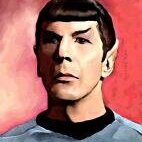
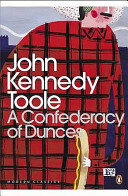
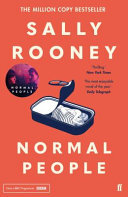
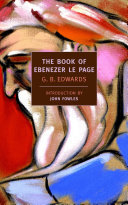
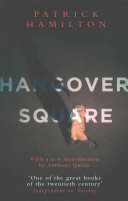
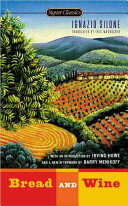
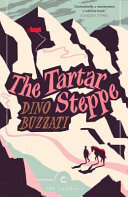

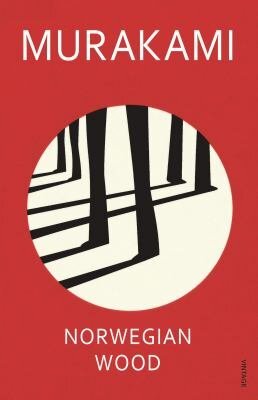
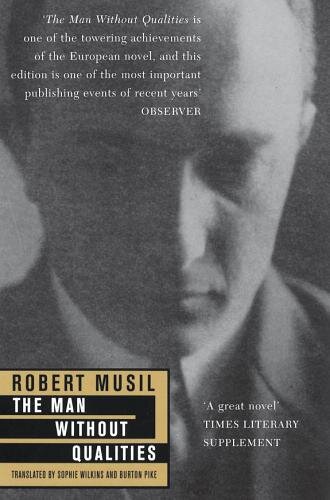
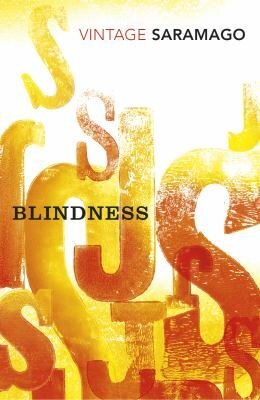
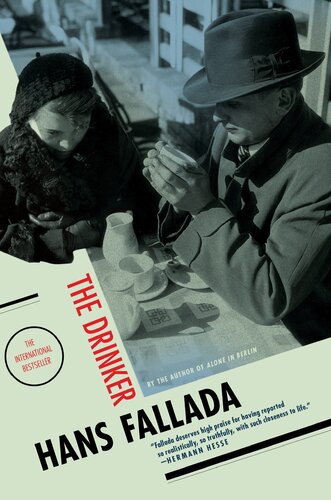
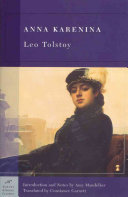
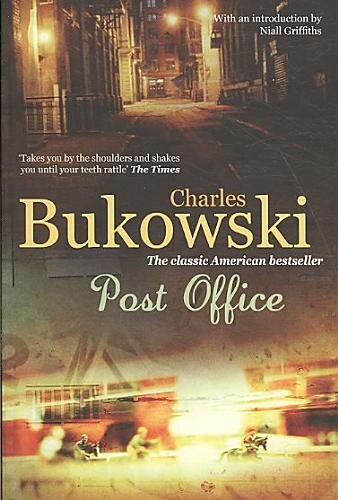
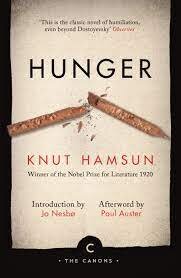
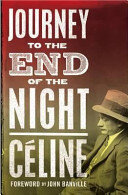
The Catcher in the Rye
in Classics
Posted
A short novel (almost a short story) about a teenage boy who gets kicked out of school and wanders about New York for a couple of days.
Gotta say, I absolutely loved it. Holden is just very funny and I love the fact that there's no story and the book is essentially just about a boy kicking about and coming to terms with grief for his brother. It seems clear to me that he's going through some kind of PTSD and Phoebe represents the thing keeping him anchored. I love how Salinger creates fictional scenarios like when Holden talks about being a coward and then imagines how he'd like to deal with a bully but also how he'd actually deal with him. The way he goes through what he'd do in the hypothetical situation is very nicely realised.
My only criticism would be the final one-page chapter. Didn't add anything. Book should have ended with him watching Phoebe on the carousel.